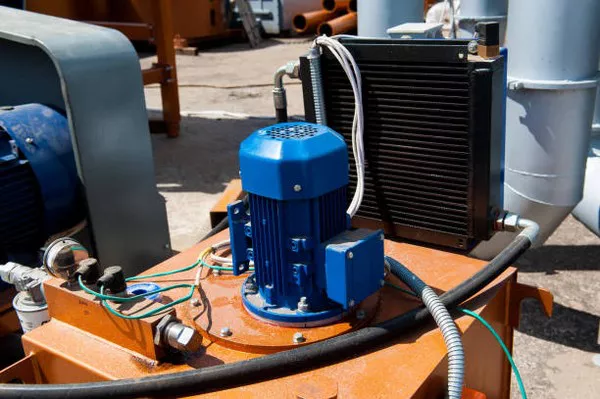Portable generators are invaluable assets in times of power outages, outdoor adventures, or as backup power sources for homes and businesses. They offer a convenient solution to keep essential appliances running when the grid fails. However, with numerous options available in the market, selecting the best portable generator can be a daunting task. In this article, we will explore the key factors to consider when choosing a portable generator and highlight some top contenders in the market.
Determine Your Power Needs
The first step in selecting the best portable generator is to assess your power requirements. Make a list of the appliances and devices you want to power during an outage or outdoor activity. Identify the starting and running wattage for each item. The starting wattage is the extra power required to start devices like refrigerators or air conditioners, while running wattage is the continuous power they consume. Total up the running and starting wattages to get an estimate of your generator’s capacity.
Fuel Type
Portable generators are available in various fuel types, including gasoline, propane, and diesel. Your choice of fuel will depend on your specific needs and preferences:
a. Gasoline generators: These are the most common and affordable options. They are readily available and easy to use. However, gasoline has a limited shelf life and can be unstable if not properly stored.
b. Propane generators: Propane generators are cleaner-burning and offer a longer shelf life for fuel storage. Propane is often preferred for its convenience and environmental benefits.
c. Diesel generators: Diesel generators are known for their fuel efficiency and longevity. They are suitable for heavy-duty applications and have a longer lifespan compared to gasoline generators.
Portability and Size
Consider where and how you plan to use your portable generator. If you need it for camping or outdoor activities, a smaller, lightweight generator with handles or wheels for easy transport may be ideal. On the other hand, if you require backup power for your home or business, you may need a larger, stationary generator that can be permanently installed.
Noise Level
Noise level is a crucial factor to consider, especially if you plan to use your generator in residential areas or campgrounds. Look for generators with lower decibel (dB) ratings, as they will be quieter during operation. Inverter generators are known for their quiet operation and are an excellent choice for noise-sensitive environments.
Runtime and Fuel Efficiency
The runtime of a portable generator depends on its fuel capacity and fuel efficiency. Generators with larger fuel tanks can run for longer periods without refueling. However, fuel efficiency is equally important, as it determines how long a generator can operate on a specific amount of fuel. Inverter generators are known for their fuel efficiency and can adjust their engine speed to match the load, resulting in longer runtimes.
Power Outlets and Features
Examine the generator’s power outlets and features to ensure they meet your needs. Most generators come with standard AC outlets, but some also include USB ports and DC outlets for charging electronics and batteries. Look for generators with features like electric start, automatic voltage regulation, and low-oil shutdown for added convenience and safety.
Brand and Reputation
Choosing a reputable brand can provide peace of mind in terms of product quality, reliability, and customer support. Research different brands, read customer reviews, and consider warranties and customer service options before making a decision.
Top Contenders
Now that we’ve discussed the key factors to consider when choosing a portable generator, let’s look at some top contenders in the market:
Honda EU2200i Inverter Generator
Honda is renowned for its reliability, and the EU2200i is no exception. This inverter generator is known for its quiet operation, fuel efficiency, and clean power output, making it an excellent choice for sensitive electronics. With a running wattage of 1,800W and a compact design, it’s suitable for camping and recreational use.
Champion 3800-Watt Dual Fuel Generator
The Champion 3800-Watt Dual Fuel Generator offers versatility with both gasoline and propane options. It provides ample power for home backup and comes with an electric start for convenience. With a runtime of up to 10.5 hours on propane, it’s a reliable choice during extended power outages.
Westinghouse WGen7500 Portable Generator
The Westinghouse WGen7500 is a robust and reliable portable generator with a running wattage of 7,500W, making it suitable for powering essential appliances during outages. It features a convenient remote start and a long runtime of up to 16 hours on a full tank of gasoline.
Generac GP3500iO Inverter Generator
Generac is a trusted name in the generator industry, and the GP3500iO lives up to the reputation. This inverter generator offers clean power for sensitive electronics and has a runtime of up to 11 hours at 50% load. Its compact design and parallel capability make it a versatile choice.
Conclusion
Selecting the best portable generator involves careful consideration of your power needs, fuel type, portability, noise level, runtime, and power features. It’s essential to research different brands and models to find the one that best suits your specific requirements. Whether you need a generator for outdoor adventures, backup power for your home, or as a reliable source of electricity in remote locations, there is a portable generator on the market to meet your needs. By following the guidelines outlined in this article and considering the top contenders mentioned, you can make an informed decision and ensure that you have a dependable power source when you need it most.

